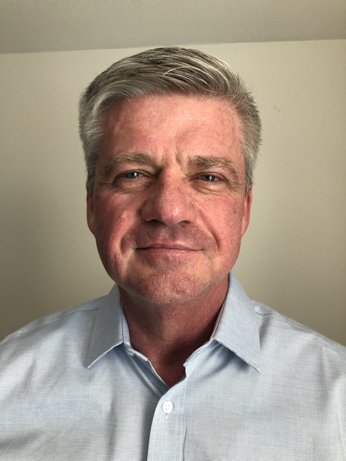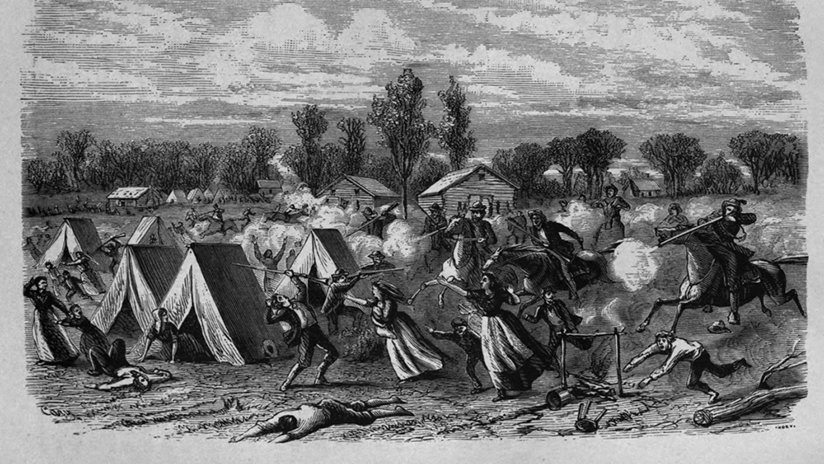
-
HOME
-
WHAT IS STANDOur Mission Our Values Our Help Contact
-
WHAT WE FIGHT FORReligious Freedom Religious Literacy Equality & Human Rights Inclusion & Respect Free Speech Responsible Journalism Corporate Accountability
-
RESOURCESExpert Studies Landmark Decisions White Papers FAQs David Miscavige Religious Freedom Resource Center Freedom of Religion & Human Rights Topic Index Priest-Penitent Privilege Islamophobia
-
HATE MONITORBiased Media Propagandists Hatemongers False Experts Hate Monitor Blog
-
NEWSROOMNews Media Watch Videos Blog
-
TAKE ACTIONCombat Hate & Discrimination Champion Freedom of Religion Demand Accountability
You Can Only Kick the Church Up—An Interview With Steve Russell
Why are political messages so senselessly extreme these days? It’s simple: a big bad enemy gets the troops excited.
But negative ads come at a cost: they can get people interested in the cause being attacked!
Churches experience this all the time. In fact, the Church of Scientology’s highly successful “Curious?” campaign follows up on a natural trend.
The Church of Jesus Christ of Latter-day Saints (LDS) knows this, too.

Recently, I interviewed Steve Russell, an attorney in private practice in Utah, who has served in many positions in the church, including bishop.
I was interested in Steven’s take on the increase in hate crimes, which the Deseret News reported on in January. According to the FBI, LDS members were targeted twice as much in 2017 as in 2015 or 2016.
What’s behind this, and how do members of the church view the problem?
Here’s Steve.

member of the The Church of Jesus Christ of Latter-day Saints
STAND:
Thank you, Steve, for sitting down with us. Being a member of the Church of Jesus Christ of Latter-day Saints, what’s your view on defamation?
RUSSELL:
Some members have been led away from the Church by anti-Mormon propaganda, and that is a sad thing. But we don’t worry too much about this stuff. And we even acknowledge that it can be helpful to the overall growth of the Church: “There is no such thing as bad publicity” is the saying. We have about 16 million members in just about every country, with about 70,000 missionaries (one of my daughters leaves for Winnipeg tomorrow for her mission) and we continue to grow.
Many people actually know members of our church, and when they hear things that are negative, it makes them curious.
Church leaders have discovered that these “anti-Mormon” propaganda campaigns have been good for growth. It is common to hear members say, “you can only kick the Church up.” The irreverent Broadway musical “The Book of Mormon,” for example, resulted in a lot of curiosity and new members. Many people actually know members of our church, and when they hear things that are negative, it makes them curious. So, most members just ignore it. I have studied almost all of it, and I find their arguments amusing.
STAND:
How is your church attacked?
RUSSELL:
Many Protestant churches actively distribute pamphlets, produce CDs, and post things on YouTube that are designed to portray our church as a non-Christian cult.
Some of the things they say are true—we just disagree about doctrine. Some things might be true, but the evidence is lacking. As a general rule, however, attacks on the early Church leaders for possible moral failings are acknowledged as possible, but irrelevant to the mission of the Church or the truth of the doctrine. As I like to say, “King David was a murderer and an adulterer, and Christians still read his Psalms.”

STAND:
I think you have the right approach. But these attacks—have they descended into much violence?
RUSSELL:
As you may be aware, the LDS Church has been maligned and misrepresented since it was organized in 1830. However, it has been a long time since the extermination order, signed by Missouri’s Governor Boggs in 1838. Then, members fled to the Utah Territory (being kicked out of the country) and have had a relatively peaceful go of it since (with a few exceptions, like when President Buchanan sent the army into Salt Lake in 1857-58).
Today, we have the Protestant and Catholic schools and places of worship. A lot is taught there that is inaccurate. However, I do not believe those teachings lead to violence. I just see them at our conferences and pageants where they pass out pamphlets and try to “save” us from the errors of our doctrine.
So, bottom line: I am not sure what to do, except to continue to be who we are.
There is nothing more personal—and, for many of us, there is nothing more precious—than the right to live as we believe and worship God as we choose.
STAND:
Bigotry can get ugly. As an extreme example, in the ’80s, many German Scientologists lost their jobs and many Scientologist kids weren’t permitted to attend state schools due to government bigotry. Fast-forwarding to this year, our church and its members experienced threats and violence inspired by an anti-religious show on A&E. What do you think is the best medicine?
RUSSELL:
The Church of Scientology does a lot of good in the world. I believe their charitable outreach is their best hope of reducing hate. Same for us. When the hurricanes strike in the Southeast, the members of our church show up in their yellow t-shirts (which identifies them as an organized relief effort) and we gain a lot of goodwill. This may be the best antidote to hate.
The other thing is: the members themselves and the lives they live help with public perception. I have had an opportunity to represent many members of the Church of Scientology and all of them have been great people of stellar character. Like members of my church, I am sure there are a few bad apples, but I have yet to meet the bad apples in the Church of Scientology. Getting to know them makes it impossible to hate them.
STAND:
Do you think the government can help?
RUSSELL:
Religious intolerance has no place in civil society. The first freedom listed in the Bill of Rights is religious freedom. There is nothing more personal—and, for many of us, there is nothing more precious—than the right to live as we believe and worship God as we choose. Therefore, government must do all it can to prevent violence motivated by religious bigotry.
STAND:
What about individuals? How do you reconcile religious belief with the all-too-common bigotry that seems to come with it?
RUSSELL:
I cannot speak on behalf of the church, of course. However, I do have an opinion: many of us are happy with our faith, and some of us are convinced we have found the truth. There are those—and fortunately they are few—who cannot abide the existence of religious differences. Sometimes, their views have led to violence against members of other faiths.
Members of my church—the Church of Jesus Christ of Latter-day Saints—are no strangers to religious persecution. Early in our history, our members were murdered, threatened with extermination by the governor of Missouri, and eventually expelled from the country. Since those early days, we have enjoyed relative peace with those of other faiths. However, hate crimes against us have doubled, in recent years, causing us concern.
Almost all religions motivate their members to be better people, and better citizens. We need each other, if we are to have a peaceful, productive society. When we recognize that, and see the value of all faiths—while still leaving room for healthy debate and polite attempts to persuade one another—then we are on our way to living peacefully together. That is my hope.









